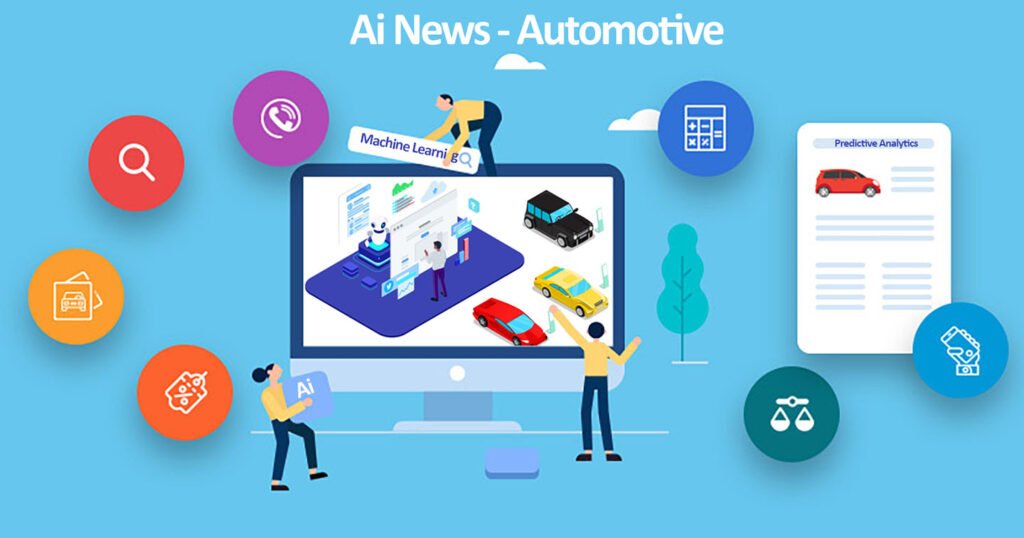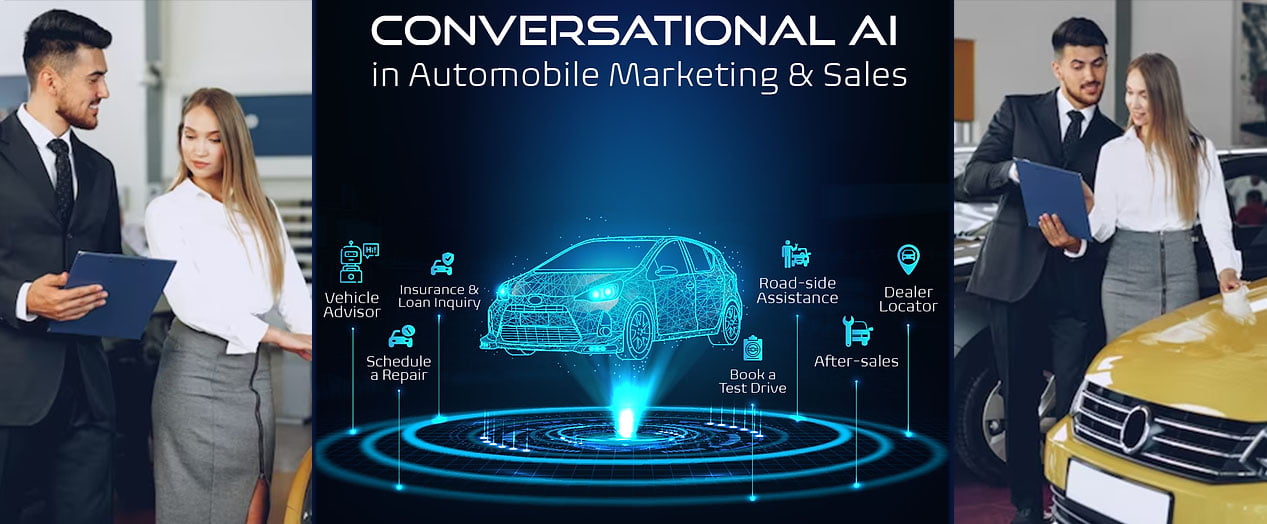

Ai NEWS IN THE AUTOMOTIVE SECTOR

Revving Up Innovation: AI's Transformative Impact on the Automotive Industry
The automotive industry, a cornerstone of the global economy, is undergoing a seismic shift. At the heart of this transformation is Artificial Intelligence (AI), a powerful catalyst driving innovation and reshaping the industry’s future. This article will explore how AI is revolutionizing the automotive sector, from manufacturing to autonomous vehicles, and beyond. AI’s impact on the automotive industry is multifaceted. It is enhancing efficiency, safety, and customer experience, while also opening up new business models and revenue streams. Here are some key areas where AI is making a significant impact:

Manufacturing: AI is streamlining the manufacturing process, reducing costs, and improving quality. Machine learning algorithms can predict equipment failures, enabling preventive maintenance and minimizing downtime. AI-powered robots are assisting in assembly lines, performing tasks with precision and consistency.
Autonomous Vehicles: Perhaps the most visible impact of AI is in the development of self-driving cars. Advanced AI algorithms are enabling vehicles to navigate complex environments, make split-second decisions, and learn from their experiences.
Predictive Maintenance: AI is helping to predict vehicle issues before they become serious problems. Machine learning models analyze data from various sensors in the vehicle to identify patterns that may indicate potential failures.
Customer Experience: AI is enhancing the customer experience through personalized recommendations, virtual assistants, and intelligent search features. It’s also transforming after-sales service with AI-powered chatbots providing instant support.
Supply Chain and Logistics: AI is optimizing supply chain operations, from demand forecasting to inventory management and route optimization.
The integration of AI in the automotive industry is not without challenges. Issues such as data privacy, cybersecurity, and the need for regulatory frameworks are critical considerations. However, the potential benefits far outweigh these challenges, and the automotive industry is just at the beginning of this exciting journey. In the next article, we will delve deeper into how AI is impacting franchise new car dealers and dealer groups. Stay tuned!
"Driving Success: How AI is Steering New Car Dealers into the Future"
In the fast-paced world of automotive retail, staying ahead of the curve is crucial. For franchise new car dealers and dealer groups, Artificial Intelligence (AI) is becoming an indispensable tool, driving efficiencies, enhancing customer experience, and boosting profitability. This article will explore how AI is transforming the operations of new car dealerships.

Inventory Management: AI-powered predictive analytics can forecast demand based on factors like market trends, seasonality, and historical sales data. This helps dealers optimize their inventory, reducing the costs associated with overstocking or understocking.
Pricing Optimization: AI can analyze vast amounts of data to determine the optimal pricing for each vehicle. It considers factors like vehicle age, mileage, features, and market demand, helping dealers maximize their profit margins.
Predictive Maintenance: AI can predict potential vehicle issues before they become problems. This not only improves customer satisfaction but also drives revenue for the service department.
Personalized Marketing: AI enables dealers to deliver personalized marketing messages based on customer behavior, preferences, and purchase history. This increases the effectiveness of marketing campaigns and improves customer retention.
Sales Forecasting: AI algorithms can analyze historical sales data and market trends to predict future sales. This helps dealers plan their strategies and make informed business decisions.
Customer Service: AI-powered chatbots can provide instant, 24/7 support to customers, answering queries, scheduling service appointments, and even facilitating transactions.
While AI offers immense benefits, it’s essential for dealers to choose the right technologies and implement them effectively. As we move forward, dealerships that embrace AI will be better equipped to navigate the challenges of the automotive retail landscape.
In our next article, we’ll explore how smaller used car dealers can leverage AI to level the playing field with their larger rivals. Stay tuned!
"Shifting Gears: How AI is Empowering Smaller Dealers to Compete with Industry Giants"
In the competitive landscape of the used car market, small dealers often face an uphill battle against larger rivals. However, the advent of Artificial Intelligence (AI) is changing the game, offering tools that can help small dealerships punch above their weight. This article will explore how smaller used car dealers can leverage AI to enhance their operations and compete effectively.

Inventory Management: AI can help small dealers optimize their inventory based on predictive analytics. By analyzing market trends and historical sales data, AI can forecast which vehicles are likely to be in demand, helping dealers make smarter purchasing decisions.
Pricing Strategy: AI can analyze a vast array of data to determine the optimal pricing for each vehicle. By considering factors like vehicle condition, mileage, market demand, and local competition, AI can help small dealers price their vehicles competitively.
Customer Insights: AI can analyze customer behavior and preferences to provide valuable insights. This can help small dealers tailor their offerings and marketing messages to meet customer needs effectively.
Digital Marketing: AI can enhance the effectiveness of digital marketing campaigns. By analyzing customer data, AI can help dealers target their marketing efforts more accurately, reaching potential customers with personalized messages.
Sales Forecasting: Even with limited data, AI can analyze market trends and historical sales to predict future sales. This can help small dealers plan their strategies and make informed business decisions.
Customer Service: AI-powered chatbots can provide instant, 24/7 customer support. This not only improves customer satisfaction but also frees up staff to focus on other areas of the business.
By leveraging AI, smaller used car dealers can enhance their operations, improve customer satisfaction, and compete more effectively with larger rivals. The key is to embrace the technology and adapt to the changing landscape of the used car market.

